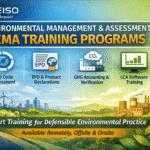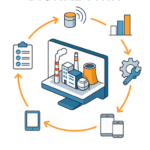
E-Waste Management
Responsible Disposal of Waste Electrical and Electronic Equipment (WEEE)

DEISO: Your Partner for Sustainable Environmental Solutions
At DEISO, we’re committed to responsible e-waste management that protects the environment and safeguards human health. Our comprehensive WEEE services provide tailored solutions for businesses and organizations, ensuring compliance, environmental responsibility, and efficient disposal of electronic waste.
Why E-Waste Management is Important
E-waste is a growing global problem due to the rapid increase in electronic devices. Improper disposal of e-waste can lead to:
- Environmental pollution: Toxic substances in electronic devices can contaminate soil, water, and air.
- Health hazards: Exposure to hazardous materials can cause serious health problems.
- Resource depletion: Valuable materials in e-waste are often wasted instead of being recovered and recycled.
- Regulatory risks: Non-compliance with e-waste regulations can result in fines and legal penalties.
DEISO's E-Waste Management Services
E-Waste Stream Analysis:
- Identifying and quantifying the types and volumes of e-waste generated by your organization.
- Analyzing the composition and value of e-waste materials.
E-Waste Collection Strategy Development:
- Designing efficient and cost-effective collection systems for e-waste.
- Implementing secure and environmentally responsible collection practices.
E-Waste Reduction Strategy Development:
- Identifying opportunities to reduce e-waste generation through product design, extended product life, and repair and reuse programs.
- Developing strategies to minimize the environmental impact of e-waste.
Recycling Assessment:
- Evaluating the feasibility and effectiveness of recycling options for different e-waste materials.
- Identifying potential markets for recycled e-waste materials.
Waste Stream Analysis:
- Analyzing the overall waste stream generated by your organization, including e-waste, general waste, and hazardous waste.
- Identifying opportunities for waste reduction, reuse, and recycling.
Waste Import and Export Analysis:
- Assessing the regulations and procedures for importing and exporting e-waste.
- Developing strategies to optimize cross-border e-waste management.
Financial Feasibility of Waste Management System:
- Evaluating the economic viability of different e-waste management systems.
- Identifying potential revenue streams and cost-saving measures.
Cost Evaluation of E-Waste Management Systems:
- Assessing the costs associated with various e-waste management options, including collection, transportation, processing, and disposal.
Development of Revenue Strategies from E-Waste Management:
- Identifying opportunities to generate revenue from e-waste management, such as selling recovered materials or providing value-added services.
Stakeholder Engagement:
- Engaging with employees, customers, suppliers, and other stakeholders to raise awareness of e-waste management issues and gain their support.
- E-Waste Management Scenario Development:
- Developing different scenarios for e-waste management to assess potential risks and opportunities.
- Assessing the Environmental Impacts of E-Waste Management via Life Cycle Assessment (LCA):
- Conducting life cycle assessments to evaluate the environmental impacts of different e-waste management options.
- Material Flow Analysis 9MFA) of E-Waste:
- Tracking the flow of e-waste materials through the value chain to identify opportunities for resource recovery and waste reduction.
- Designing and Developing Awareness Programs:
- Creating educational programs to raise awareness of e-waste issues and promote responsible e-waste management practices.
Benefits of Working with DEISO
By partnering with DEISO, you can:
- Ensure environmental compliance: Adhere to e-waste regulations and avoid legal and financial risks.
- Reduce your environmental footprint: Contribute to a more sustainable future by minimizing e-waste and recovering valuable materials.
- Optimize your operations: Streamline your e-waste management processes and reduce costs.
- Improve your reputation: Demonstrate your commitment to corporate social responsibility and environmental stewardship.
Share this:
- Email a link to a friend (Opens in new window) Email
- Share on LinkedIn (Opens in new window) LinkedIn
- Share on X (Opens in new window) X
- Share on Facebook (Opens in new window) Facebook
- Share on WhatsApp (Opens in new window) WhatsApp
- Share on Reddit (Opens in new window) Reddit
- Print (Opens in new window) Print
- More










